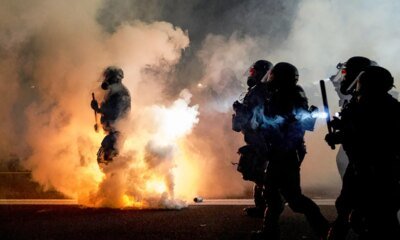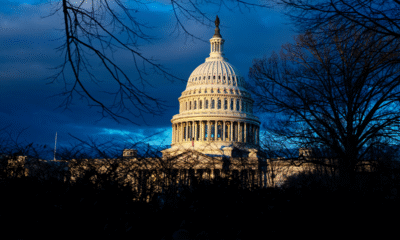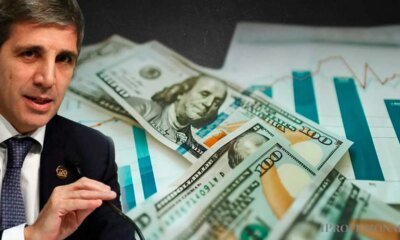INTERNACIONAL
Trump signs education-focused executive orders on AI, school discipline, accreditation, foreign gifts and more
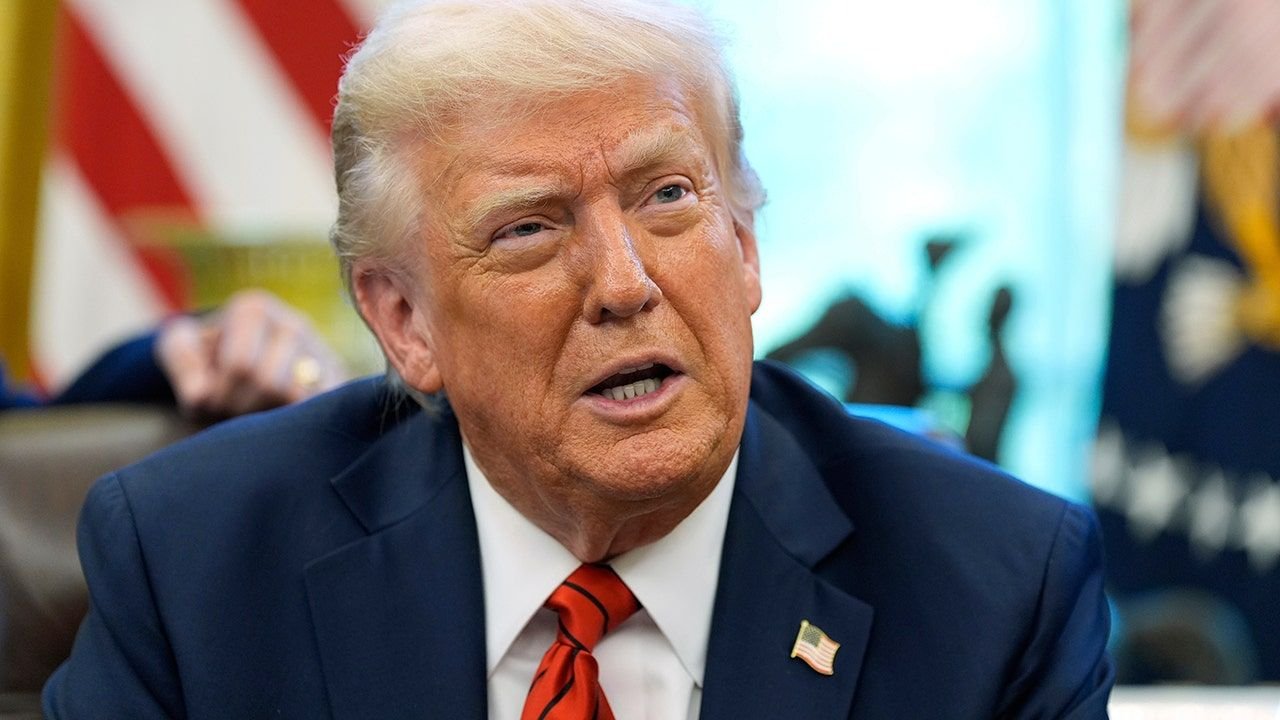
President Donald Trump signed multiple Executive Orders relating to education Wednesday afternoon, with several tied to the theme of returning meritocracy back to the education system.
The orders, seven in total, included actions to integrate artificial intelligence into K-12 school curricula, reforms to school discipline and accreditation guidelines, requirements related to the disclosure of foreign funding to schools and enhancements to the country’s workforce development programs.
Trump’s slew of education-focused orders also included another directive demanding an end to DEI ideology in schools, specifically the use of «disparate impact theory,» on top of his previous executive order from January ordering an end to DEI-like programming and ideology in K-12 schools. An Executive Order setting up a White House initiative supporting the efficiency and effectiveness of Historically Black Colleges and Universities was also signed by the president on Wednesday.
EDUCATION DEPARTMENT TO RESUME COLLECTIONS ON DEFAULTED FEDERAL STUDENT LOANS FOR FIRST TIME SINCE 2020
President Donald Trump holds an executive order relating to education in the Oval Office of the White House, Wednesday, April 23, 2025, in Washington, as Commerce Secretary Howard Lutnick, Labor Secretary Lori Chavez-DeRemer and Education Secretary Linda McMahon watch. (AP Photo/Alex Brandon)
«They’re allowing people into school – they can’t do math – and yet kids who have worked really hard and are number one in their class out of high school – some place in New Jersey or Mississippi – they can’t get into the best schools,» Trump said as he signed his order implementing new school accreditation requirements. «What is that all about?»
«I think that gets to your policy, sir, of meritocracy – that we should be looking at those who have real merit to get in,» Department of Education Secretary Linda McMahon, who was standing over Trump’s shoulder as he signed, chimed in. «And we have to look harder at those universities that aren’t enforcing that.»
The accreditation reforms, along with the president’s Executive Orders on school discipline and «disparate impact theory,» were all connected to pulling back from the Biden administration’s era of prioritizing DEI over meritocracy. Specifically, the accreditation reforms seek to prevent accreditors from imposing «discriminatory diversity, equity, and inclusion (DEI)-based standards,» while compelling them to «prioritize student outcomes.»
‘THIS IS INDOCTRINATION, NOT EDUCATION’: PLAINTIFF IN SCOTUS CASE SLAMS SCHOOLS FOR FORCING LGBTQ+ CURRICULUM
Meanwhile, under the Biden administration, the Department of Education released student discipline guidance contending that persistent racism clouds school disciplinary systems. Trump’s Wednesday Executive Order rescinds that guidance.
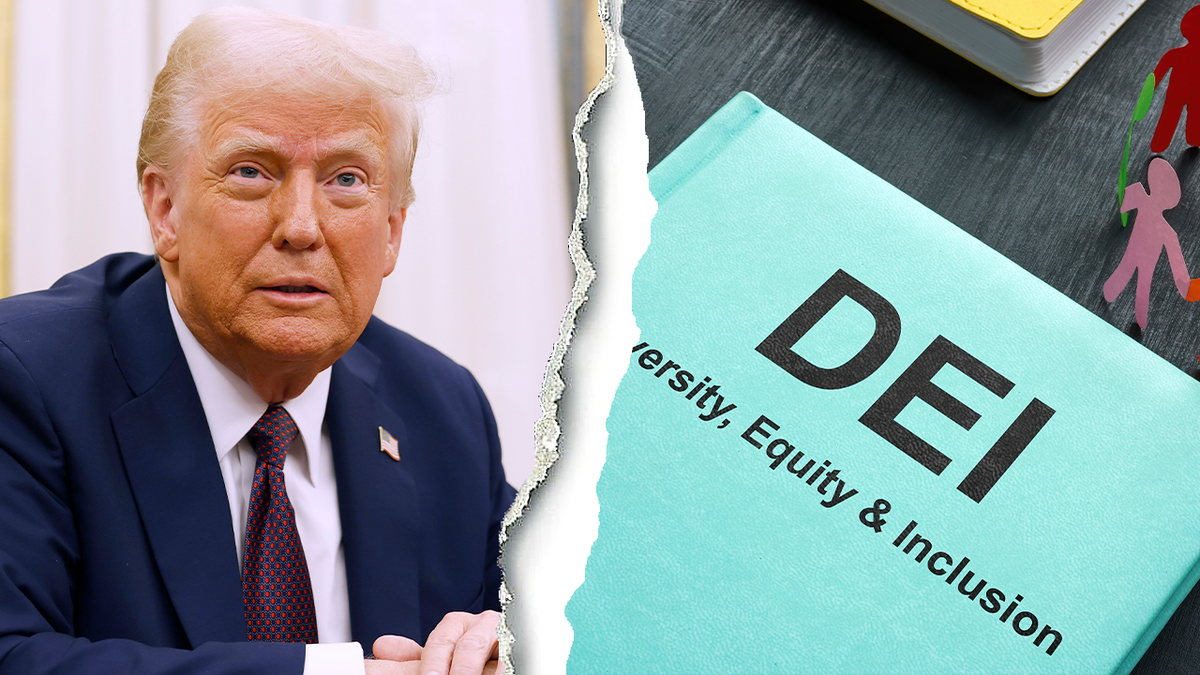
President Donald Trump has been a staunch opponent to what he describes as «discriminatory» diversity, equity and inclusion (DEI) programs across the United States. (Getty Images)
«Under, I believe it was the Biden administration – first Obama and then Biden – the Department of Justice issued guidance that made it almost impossible for schools to enforce adequate disciplinary policies,» Trump’s executive assistant Will Scharf said of the order as Trump was signing it. «Basically they focused on CRT and diversity ideology, instead of actually just enforcing the rules in classrooms to ensure a safe learning environment.»
The prohibition of «disparate impact theory» builds on the president’s past orders on ridding «discriminatory» DEI programs and influences from educational settings.
«This is a theory that underlies a lot of the modern DEI and CRT-driven diversity culture,» Scharf explained. «The basic idea is instructing your department and agencies to no longer rely on disparate impact theory as they’re regulating, as they’re issuing guidance, as they’re making rules. We want to focus on results, we want to focus on actual fairness, we want to focus on merit, not things like disparate impact theory and the whole sort-of diversity, equity and inclusion cult.»
TRUMP ADMINISTRATION ASKS SCOTUS TO APPROVE DEI-RELATED EDUCATION CUTS
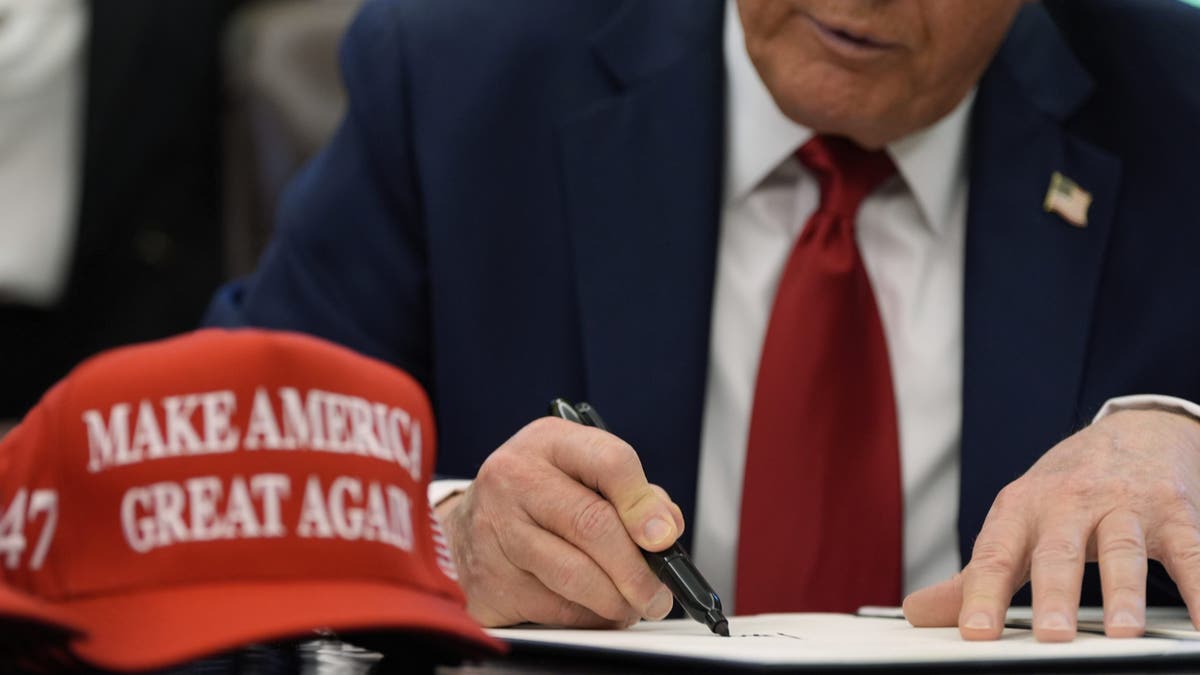
President Donald Trump signs an executive order relating to education in the Oval Office of the White House, Wednesday, April 23, 2025, in Washington. (AP Photo/Alex Brandon)
Besides focusing on returning meritocracy to the education system, the president’s Executive Orders also sought to modernize American education and workforce preparation through the implementation of AI education in schools and through a commitment to add 1 million new apprenticeships.
The AI order, Trump’s latest pro-AI measure, established a White House task force for AI and education that will work with federal agencies and the private sector to help draft AI programs for schools.
CLICK HERE TO GET THE FOX NEWS APP
The president previously signed an Executive Order in January, which worked to rescind Biden-era policies that critics say restricted the nation’s AI growth.
Artificial Intelligence,Donald Trump,US Education,Trump’s First 100 Days
INTERNACIONAL
La tragedia del vuelo de Air France Río-París vuelve al banquillo 16 años después
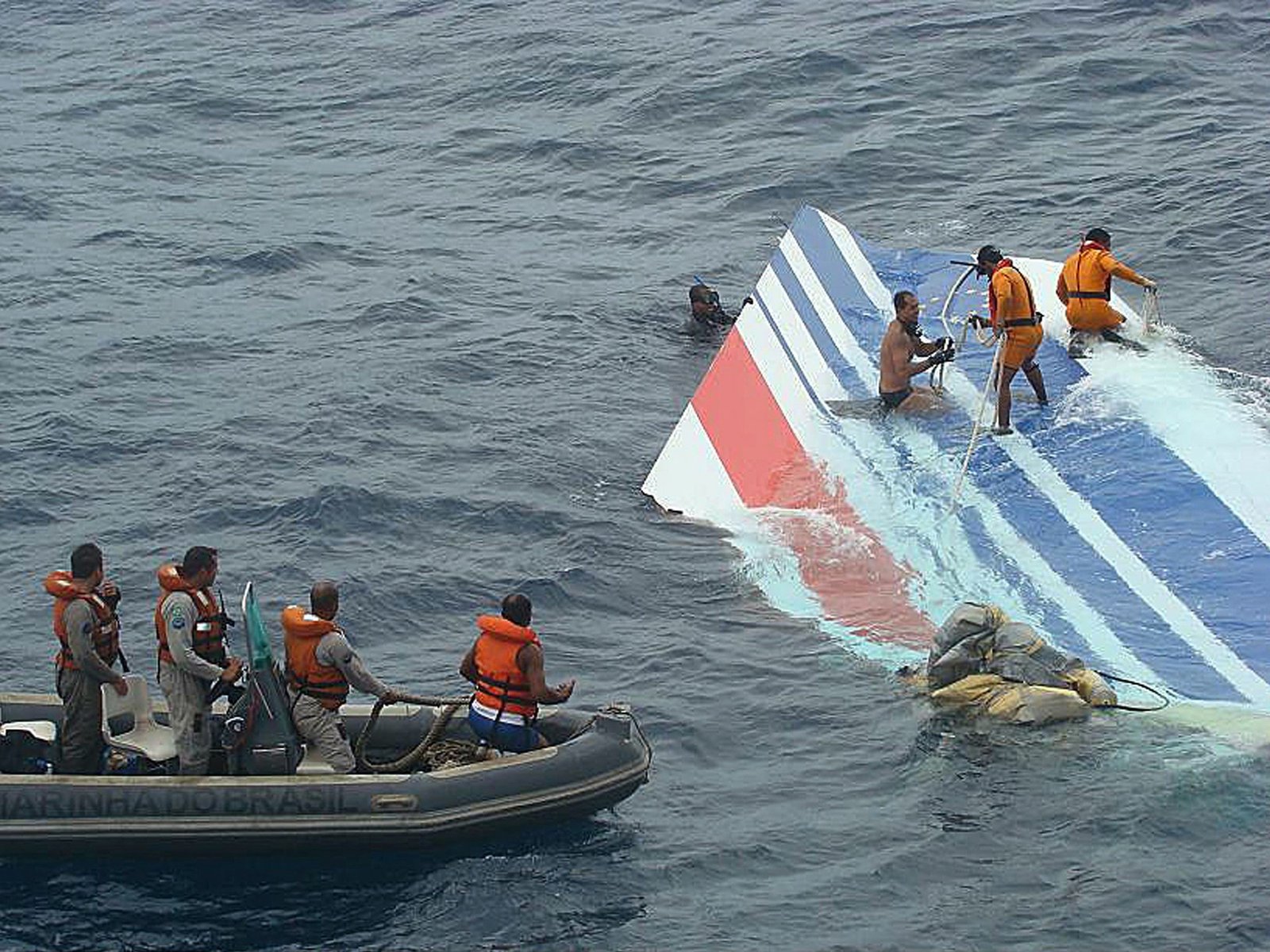
El 1 de junio de 2009, un Airbus de Air France que había partido de Rio de Janeiro hacia París (vuelo AF447) se estrelló en plena noche en el Atlántico, pocas horas después de su despegue, causando la muerte de sus 216 pasajeros y 12 miembros de la tripulación. A bordo del A330 había personas de 33 nacionalidades, entre ellas 72 franceses y 58 brasileños.
Dieciséis años, Air France y Airbus vuelven a ser juzgados en apelación desde este lunes para determinar si son responsables de homicidios involuntarios por la tragedia que dejó 228 muertos.
El juicio en el tribunal de apelación de París, que comenzó este lunes por la tarde, se espera que dure dos meses. La aerolínea y el fabricante habían resultado absueltos en primera instancia en 2023.
Las cajas negras confirmaron el origen del accidente: la congelación de las sondas de velocidad Pitot mientras el avión volaba a gran altura en una difícil zona meteorológica cerca del ecuador.
Por este accidente aéreo, ambas empresas serán juzgadas hasta el 27 de noviembre por el tribunal de apelación de París. Cada una de las empresas se expone a una multa de 225.000 euros (263.000 dólares).
«Air France mantendrá que no cometió ninguna falta penal en el origen de este accidente. Soy consciente de que esta declaración puede ser difícil de escuchar para los familiares de las víctimas, pero quiero subrayar que esto no subestima en absoluto nuestra compasión por lo que han vivido y continúan viviendo», declaró en el estrado la directora general de Air France, Anne Rigail.
El 17 de abril de 2023, tras dos meses de debates altamente técnicos que incluyeron audiencias emotivas con familiares de las víctimas, el tribunal correccional de París absolvió en el plano penal a Airbus y Air France, aunque reconoció su responsabilidad civil.
Consideró que si bien se cometieron «imprudencias» y «negligencias», «no se pudo demostrar (…) ningún vínculo causal seguro» con el accidente más mortal en la historia de las aerolíneas francesas.
Aunque el Ministerio Público había solicitado en la audiencia la absolución de ambas empresas, la Fiscalía General apeló la sentencia «con el propósito de dar pleno efecto a los recursos previstos por la ley y someter el caso a un segundo nivel de jurisdicción».
Alain Jakubowicz, abogado de numerosas partes civiles dijo a AFP que algunas personas «se cansaron y tiraron la toalla para intentar pasar página. Otras siguen luchando con uñas y dientes y quieren a toda costa que se haga justicia y que se diga claramente la verdad en un ámbito judicial».
De las 489 partes civiles constituidas durante el juicio de primera instancia, 281 se unieron a la apelación en este caso, que cuenta con 20.000 elementos procesales distribuidos en 105 tomos. Para los familiares este proceso representa «el último cartucho», según dijo Philippe Linguet, hermano de una de las víctimas del accidente.
«Queremos una justicia que sea combativa, que salga del marco para condenar a dos empresas europeas y multinacionales y decirles, con palabras simples: ‘Han cometido errores, deben reconocerlos’», declaró a la prensa antes del inicio del juicio el vicepresidente de la asociación Entraide et solidarité AF 447.
Air France está acusada de no haber impartido a los pilotos una formación adecuada sobre situaciones de congelación de las sondas Pitot, que miden la velocidad del avión en el exterior, y por no haber informado suficientemente a sus tripulaciones, algo que la aerolínea siempre negó.
Airbus enfrenta acusaciones de haber subestimado la gravedad de las fallas de las sondas anemométricas y no haber tomado todas las medidas necesarias para informar con urgencia a las compañías aéreas que las utilizaban, una versión que el fabricante aeronáutico europeo niega también.
«Airbus cooperará plenamente con el juicio de apelación que comenzará el 29 de septiembre con el fin de seguir esclareciendo las causas de este trágico accidente, en sintonía con el compromiso total de la empresa con la seguridad aérea», afirmó la empresa en un comunicado.
El calendario provisional del proceso establece que el primer mes del juicio se dedicará a las audiencias de testigos y peritos.
Se prevé que los representantes de Airbus y Air France sean interrogados a partir del 27 de octubre.
Alexandre Marchand y Benoît Ducrocq/ AFP
Air France,Francia,Rio de Janeiro,Accidentes Aéreos
INTERNACIONAL
Illegal alien who sent ‘vulgar, racist’ bomb threat to female member of Congress arrested by ICE
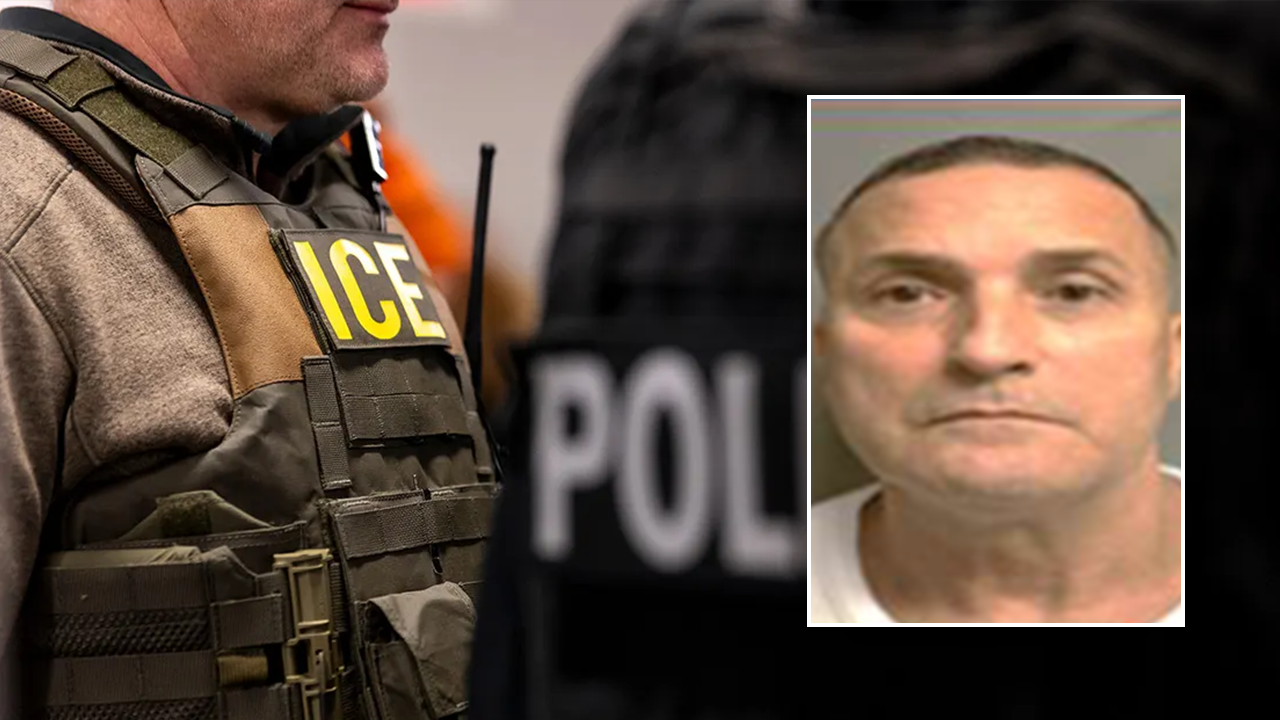
NEWYou can now listen to Fox News articles!
FIRST ON FOX: An illegal alien who left an obscenity-laden bomb threat to a member of Congress was arrested by ICE over the weekend, according to the Department of Homeland Security.
In a statement sent to Fox News Digital, the DHS said that Rigoberto Albizar-Martinez, a 58-year-old Cuban illegal living in Tampa, was arrested by ICE over the weekend as part of its efforts to crack down on the «worst of the worst» criminal illegal aliens.
DHS said that Albizar-Martinez threatened to bomb the office of Rep. Kathy Castor, D-Fla.
He was sentenced to a year in prison in May after being found guilty in December of leaving a «vulgar, racist, obscenity-laden voicemail» in which he threatened to plant a bomb in the congresswoman’s Tampa office, according to a statement by the U.S. Attorney’s Office for the Middle District of Florida.
ICE AGENTS PRAISED FOR ‘HEROIC’ ACTIONS IN DALLAS ATTACK
Rigoberto Albizar-Martinez, a 58-year-old Cuban illegal living in Tampa, was arrested by ICE over the weekend as part of its efforts to crack down on the «worst of the worst» criminal illegal aliens. (Christopher Dilts/Bloomberg via Getty Images and DHS)
Local outlet WFLA reported that in his message, Albizar-Martinez said in Spanish, «I’m going to plant a bomb in your office. It’s a threat,» and «It’s a threat, so take it however you want you son of a f****** b****.»
The outlet also reported that in the same message, Albizar-Martinez also attacked Democrats, black people and pro-Palestinian people.
Commenting on his arrest by ICE, DHS Assistant Secretary Tricia McLaughlin said in a statement to Fox News Digital that «there is no place for political violence in America.»
«Rigoberto Albizar-Martinez threatened to bomb a Congresswoman’s office,» said McLaughlin. «Thanks to the brave men and women of ICE, this illegal alien and national security threat will be out of our country.
«Nothing will deter us to remove the worst of the worst from America communities,» she added.
Castor did not immediately respond to Fox News Digital’s request for comment.
CHICAGO ANTI-ICE AGITATOR FACES FEDERAL CHARGES AFTER THREATENING TO ‘KILL’ AGENT
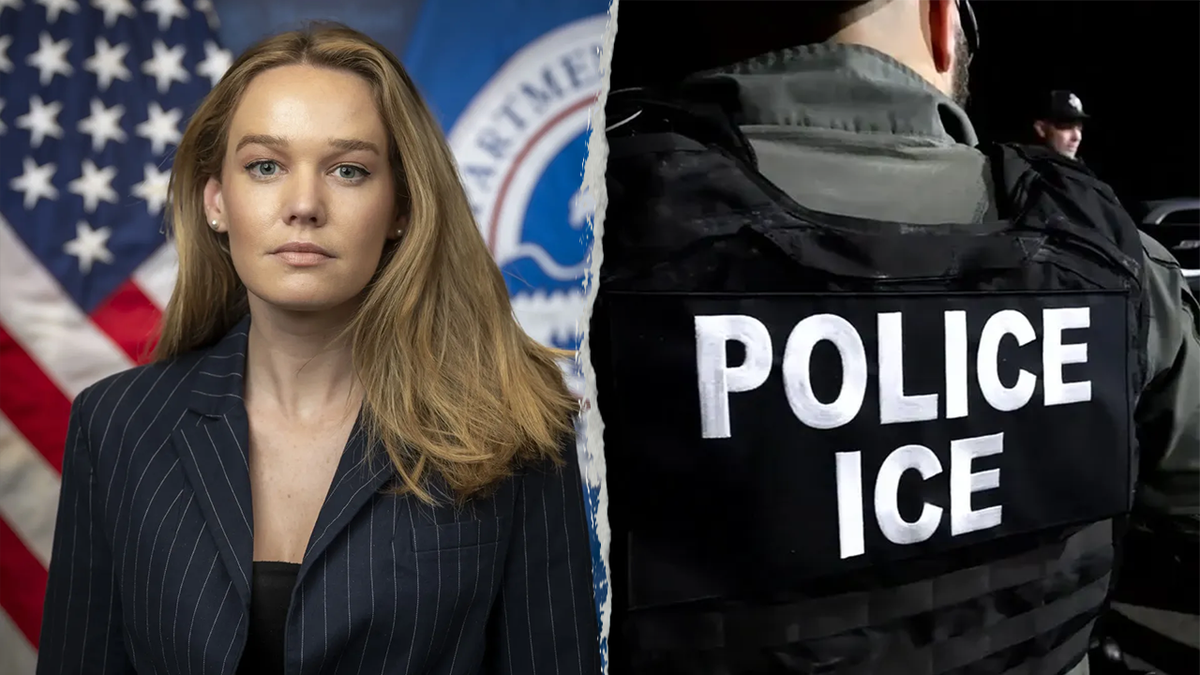
Left: Tricia McLaughlin, assistant secretary of the Department of Homeland Security. Right: ICE agents (DHS; ICE )
This comes as many Democrats have criticized ICE agents for carrying out immigration enforcement operations, accusing them of racially profiling people, using «Gestapo tactics» and terrorizing communities.
DHS said that over the weekend, it also arrested several other criminal illegal aliens, including child rapists, gang members and a human smuggler.
Among those arrested was Jorge German Aglony, a Chilean illegal in California, who was convicted of inflicting pain and suffering on a dependent adult or elder, as well as receipt and possession of child pornography.
Another illegal arrested, Leonardo Velazquez-Marin, from Mexico, was also convicted of possession of child pornography in Dallas County, Texas. Also in Texas, ICE arrested Jose Elias Mejia-Orellana, a Honduran national who was convicted of aggravated sexual assault of a child under 14 in Collin County.
In Maryland, ICE arrested another child predator, Melvin Guiakora, from Central African Republic, who was convicted for sexual solicitation of a minor in Washington County.
ICE also arrested a member of the Cartel de Jalisco Nueva Generacion, Mexican national Adan Mares-Martinez, who was convicted of assault with a deadly weapon causing great bodily injury in Norwalk, California.
ILLEGAL ALIEN ARRESTED BY ICE FOUND REGISTERED AS ACTIVE DEMOCRAT VOTER IN BLUE STATE
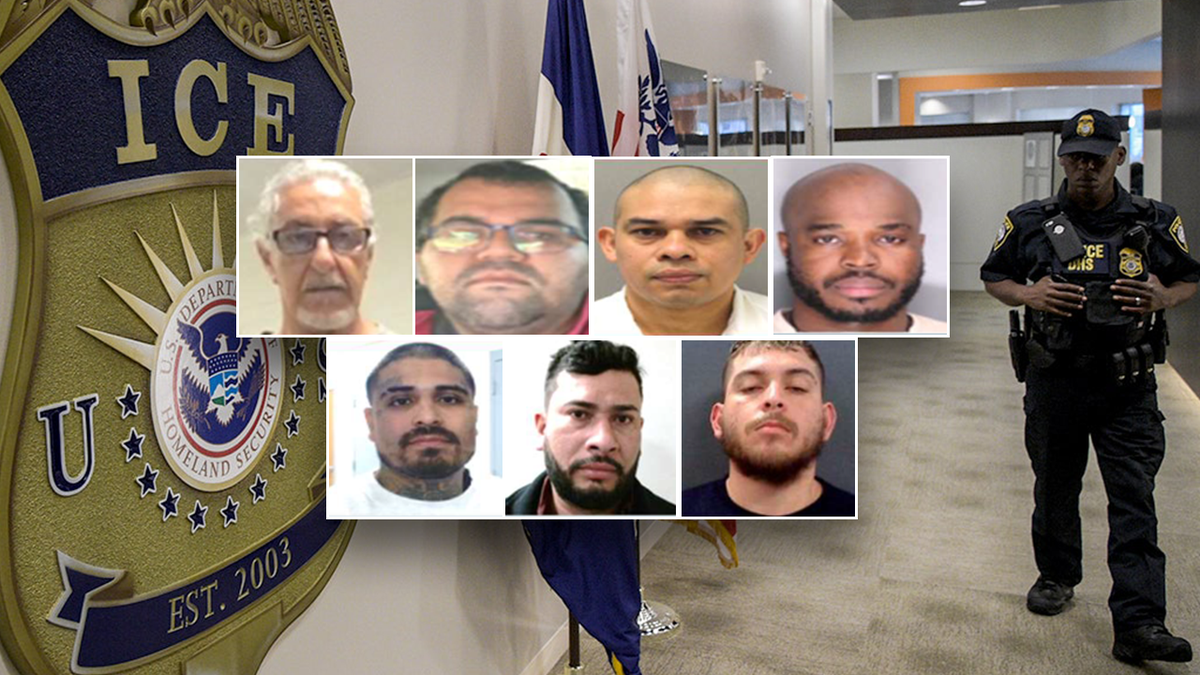
Recent illegal aliens apprehended by ICE. (Salwan Georges/The Washington Post via Getty Images and DHS)
Another illegal, Elvin Humberto Madrigal-Calero, from Nicaragua, was arrested following a conviction of involuntary manslaughter in Pulaski County, Virginia.
In El Centro, California, Mexican national Oscar Morales-Valencia, was arrested by ICE following a conviction of bringing in and harboring aliens.
CLICK HERE TO GET THE FOX NEWS APP
This comes shortly after DHS announced that two million illegal immigrants «have been removed or have self-deported» from the U.S. since Jan. 20, putting the Trump administration on pace to break records.
In less than 250 days, an estimated 1.6 million illegal immigrants have voluntarily self-deported, while 400,000 were removed by federal law enforcement, the DHS said last week, describing the situation as a «new milestone.»
«Ramped-up immigration enforcement targeting the worst of the worst is removing more and more criminal illegal aliens off our streets every day and is sending a clear message to anyone else in this country illegally: Self-deport or we will arrest and deport you,» said McLaughlin.
migrant crime,illegal immigrants,immigration,homeland security
INTERNACIONAL
Cronología de las treguas en Gaza: dos altos el fuego quebrados y “pausas tácticas” que no frenaron la guerra
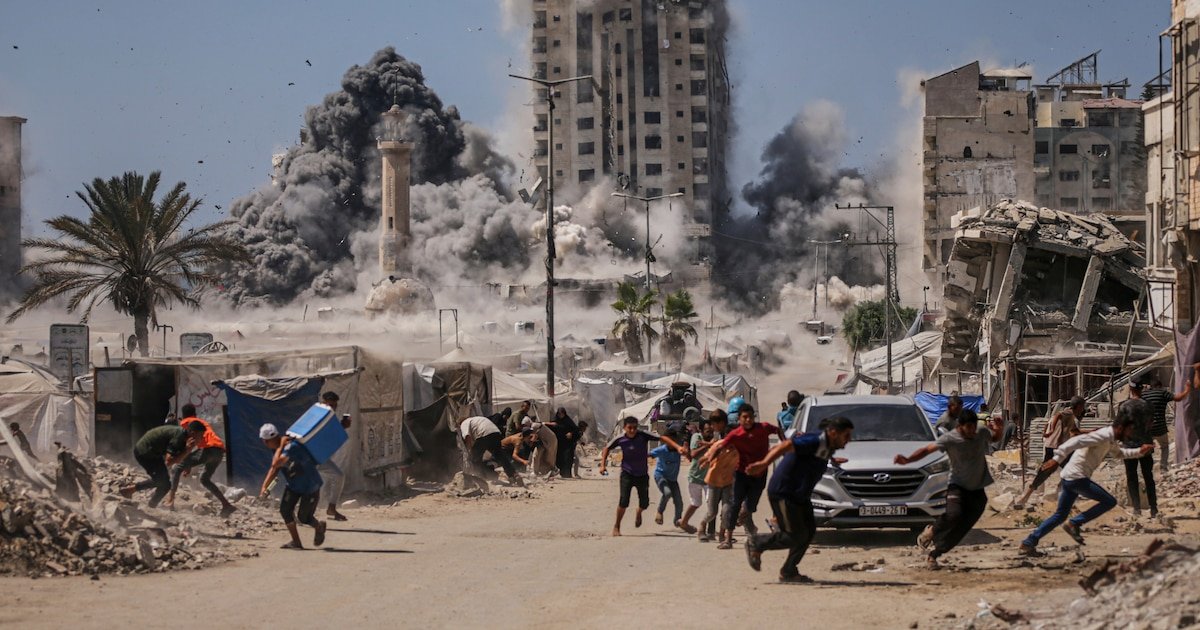
El primer ministro israelí, Benjamín Netanyahu, aceptó este lunes en una comparecencia en la Casa Blanca la última propuesta estadounidense de alto el fuego en Gaza, sobre la que aún se tiene que pronunciar el grupo islamista Hamás y que supone un nuevo intento de conseguir la paz, a una semana de cumplirse el segundo aniversario de los ataques del 7 de octubre.
La esperanza de alcanzar un alto el fuego ha pasado desde 2023 por distintas fases. Entre los principales escollos han figurado tradicionalmente la petición del grupo terrorista Hamas de una tregua que suponga el fin definitivo de la guerra, el desarme del grupo islamista, así como la insistencia israelí en mantener su presencia en la Franja de Gaza.
Durante casi dos años de ofensiva, se han producido hasta el momento dos treguas, la primera de ellas, de seis días, en noviembre de 2023, que supuso la liberación de 105 rehenes de Hamas en Gaza y 205 presos palestinos en Israel, y la segunda, de casi dos meses, en enero de 2025.
Este último alto el fuego supuso la liberación de 33 rehenes mientras Israel emprendía la retirada progresiva de sus tropas, así como la puesta en libertad de presos palestinos, unos 1.900 en total.
Duró hasta que el 18 de marzo Israel lo rompió de forma unilateral y volvió a su ofensiva en Gaza, donde se han producido hasta el momento 66.000 muertes por el fuego israelí e Israel ha ocupado un 80 % de su territorio.

A continuación, las fechas destacadas en las negociaciones en la que media Egipto, Qatar y EEUU:
23 noviembre: Egipto confirma un acuerdo de tregua temporal de cuatro días que incluye la liberación de rehenes a cambio de presos. Al día siguiente, Hamas libera a 24 rehenes e Israel excarcela a 39 palestinos.
27 noviembre: La tregua se extiende dos días más. En total, 105 rehenes fueron liberados —24 de ellos extranjeros— a cambio de la excarcelación de 240 presos palestinos.
9 abril: Tras una ronda de conversaciones en El Cairo, Hamas recibe una propuesta de tregua que permitiría la liberación de 40 rehenes en Gaza a cambio de un alto el fuego temporal y la puesta en libertad de cientos de presos palestinos.
1 junio: Joe Biden presenta un plan de tres partes que comenzaría con un alto el fuego de seis semanas en el que Israel se retiraría de Gaza, un “aumento” de ayuda humanitaria y un intercambio de rehenes por prisioneros palestinos.

11 junio: Hamas acepta la resolución de alto el fuego adoptada el día anterior por la ONU y dice estar dispuesto a negociar.
19 agosto: EEUU asegura que Netanyahu ha aceptado su última propuesta e insta a Hamas a hacer lo mismo.
9 noviembre: Qatar anuncia que suspende su mediación por los escasos avances.
6 diciembre: Hamas se muestra con “esperanza de alcanzar un acuerdo” que ponga fin a la guerra.
15 enero: Acuerdo de alto el fuego por el que Hamas liberará a 33 rehenes vivos o muertos —en tres fases de 42 días cada una— e Israel emprenderá la retirada progresiva de sus tropas y la puesta en libertad de presos palestinos (en total unos 1.900).
17 enero: El Gobierno israelí vota el alto el fuego para que entre en vigor el domingo a las 12:15 horas.
2 marzo: Israel bloquea la entrada de ayuda humanitaria al enclave, después de que Hamas rechazara la extensión de la primera fase del alto el fuego en lugar de pasar a la segunda, tal y como recogía el acuerdo.
18 marzo: Israel termina con el alto el fuego y vuelve a su ofensiva en Gaza. Mata en un día a más de 400 civiles, en una oleada de ataques aéreos.

1 julio: Trump anuncia que Israel habría aceptado una propuesta de alto el fuego de 60 días a cambio de que Hamas libere a 10 rehenes con vida y entregue los cuerpos de otros 15.
27 julio: En medio de muertes que se multiplican por desnutrición, Israel anuncia una “pausa táctica” diaria de diez horas en su actividad militar en tres zonas del enclave para permitir la distribución de ayuda humanitaria.
29 julio: Pese a la “pausa táctica”, 20 gazatíes mueren por disparos israelíes en dos puntos de distribución de comida, unas muertes que se repiten casi cada día.
8 agosto: El Gabinete de Seguridad del Gobierno de Israel da luz verde a un plan militar para ocupar la ciudad de Gaza, capital del enclave palestino.
18 agosto: Hamas acepta una propuesta de alto el fuego temporal de 60 días de Egipto y Qatar, que incluye congelar sus actividades militares en la Franja de Gaza. Israel no responde oficialmente a esa propuesta.
(Con información de EFE)

 CHIMENTOS3 días ago
CHIMENTOS3 días agoFlor Jazmín Peña reveló la profunda crisis que tuvo por culpa de Nico Occhiato

 CHIMENTOS3 días ago
CHIMENTOS3 días agoMirtha Legrand bloqueó a una famosa periodista en WhatsApp y ella está desesperada para que le vuelva a hablar

 POLITICA2 días ago
POLITICA2 días agoFrancos apuntó al gobierno de Kicillof por el triple femicidio narco: “¿Qué dirá la gente que votó a Magario?»





